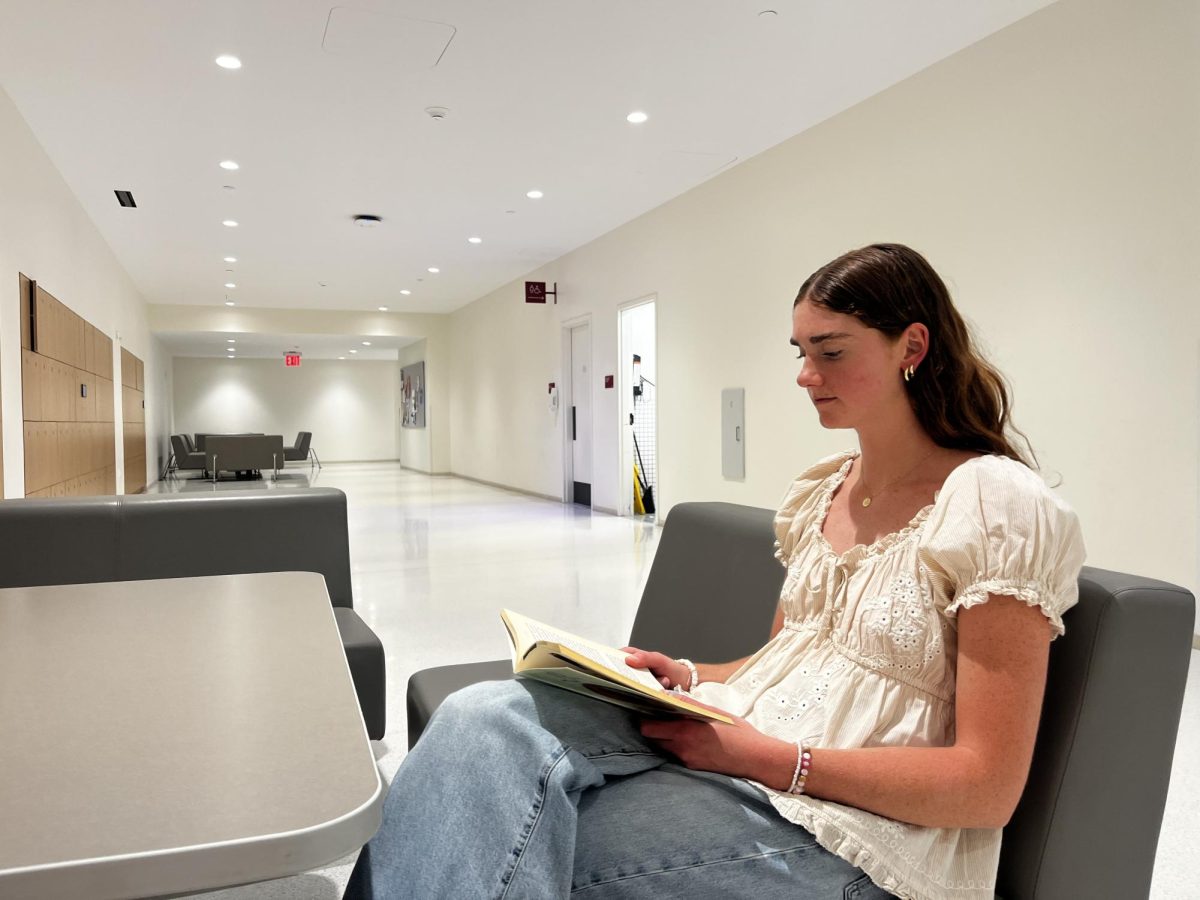How many times have you come back to your room after a day of classes, clubs or a night out and found yourself craving a 300-page novel? Many of us, if not all, would say never.
Thinking about the amount of time we spend reading for our classes, how is it possible that so many students wouldn’t consider reading a pastime? In the first few weeks of classes we all received our logins for Blackboard where we found homework, exam dates and required readings. In fact, for this semester of classes, I don’t need to own a single book or textbook to study. All the work and reading is online, and I would have to go out of my way to receive the paper versions. Over the summer, it is much easier to fill time with a new book, but, when the academic year starts, my amount of free time is vastly reduced. When summer breaks go away and we begin working year-round jobs, will we continue reading or will our last book read be an assigned reading from a core class?
As students in higher education, professors and administrators expect us to have done quite a bit of reading in high school, given how they assign longer readings in college. All through high school, we are told that the stakes in college are higher and more will be expected of us. If we focus solely on the topic of reading, though, this doesn’t seem to be an accurate description. The question I am posing is as follows: Are students reading for pleasure? Going off my own experiences, I feel I can answer pretty quickly and claim no, students aren’t reading much for pleasure. Even when we are, it is usually isolated to the summer months when we have the spare time. A better question to ask might be, “Why are we less inclined to read?” And if we aren’t being incentivized by our universities to pick up a book outside of class, is it really that important?
Multiple studies in recent years, including one published by the New York Times and the Medical Press have found that Americans are reading 40% less since 2003. This is a huge shift in Americans’ use of time, and not enough research has been done into the “why” aspect of it. I conducted a small poll of students from my dorm floor and came up with answers that I feel resonate with many of us. There is, of course, social media that consumes so much of our time either scrolling, posting or ranting; we spend hours on our social media apps. There is also the societal pressure to constantly be productive. When we only have 15 minutes between classes, a smart phone is a much more accessible option than a book. When I asked students why they think they aren’t reading for pleasure, almost all of them said that their reading habits are correlated with what is asked of them in class. Teachers assign readings and, for many students, that fulfills the reading requirement they hold for themselves. Unfortunately, this removes much of the pleasure from reading, since assigned readings are basically just chores on a checklist, waiting to be completed.
During orientation, we received handfuls of packets for clubs, events and other opportunities around campus. In one of those pamphlets was a free subscription coupon for Max, previously known as HBO Max. When I saw this, I immediately signed in and looked at all the new show options I have access to. I was excited to start a new show and find new characters to fill my days with. As I started brainstorming for this article, I thought back on that coupon. What is Fordham saying about its priorities by providing streaming service access to all its students? That money could potentially be better spent elsewhere, like giving students discounts on textbooks or expanding the catalogue of books offered at the Fordham bookstore. If a student wishes to purchase a physical book for pleasure or even for a class, they would need to find and pay for it all by themselves, which is hardly as accessible as a free streaming service or online readings for class. The shift from paper to digital is not something that students are necessarily creating themselves; it’s also being built that way around us by our university. This makes it our responsibility as students to seek out new books and challenge ourselves to read.
Though reading is becoming harder to fit into our busy lives, it has consistently been shown that reading is important for brain development, and it may even add years to your life. But how can we incorporate reading for pleasure in our everyday lives? I asked Professor Elizabeth Bolger from Fordham’s English department about her thoughts on this issue. She said, “I know that the amount of books I read for sole pleasure … decreases a bit during the academic year. That being said, I’ve found that audiobooks have been a great way to read and get some chores done!” Finding new ways to read, whether it’s online or an audiobook, provides a potential solution to the issue of finding convenient opportunities to read. Since information is everywhere, reading for pleasure might no longer be about keeping up rather about giving yourself an opportunity to slow down.
Uma Petzke, FCRH ‘29, is a psychology major from San Francisco, CA.










































































































































































































